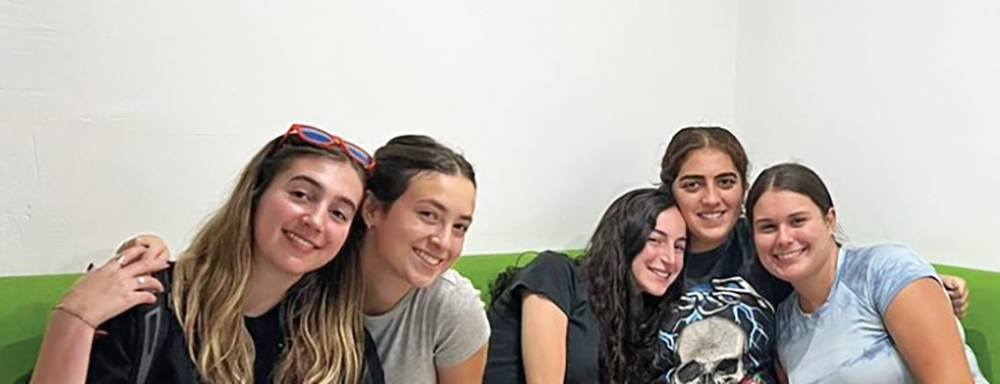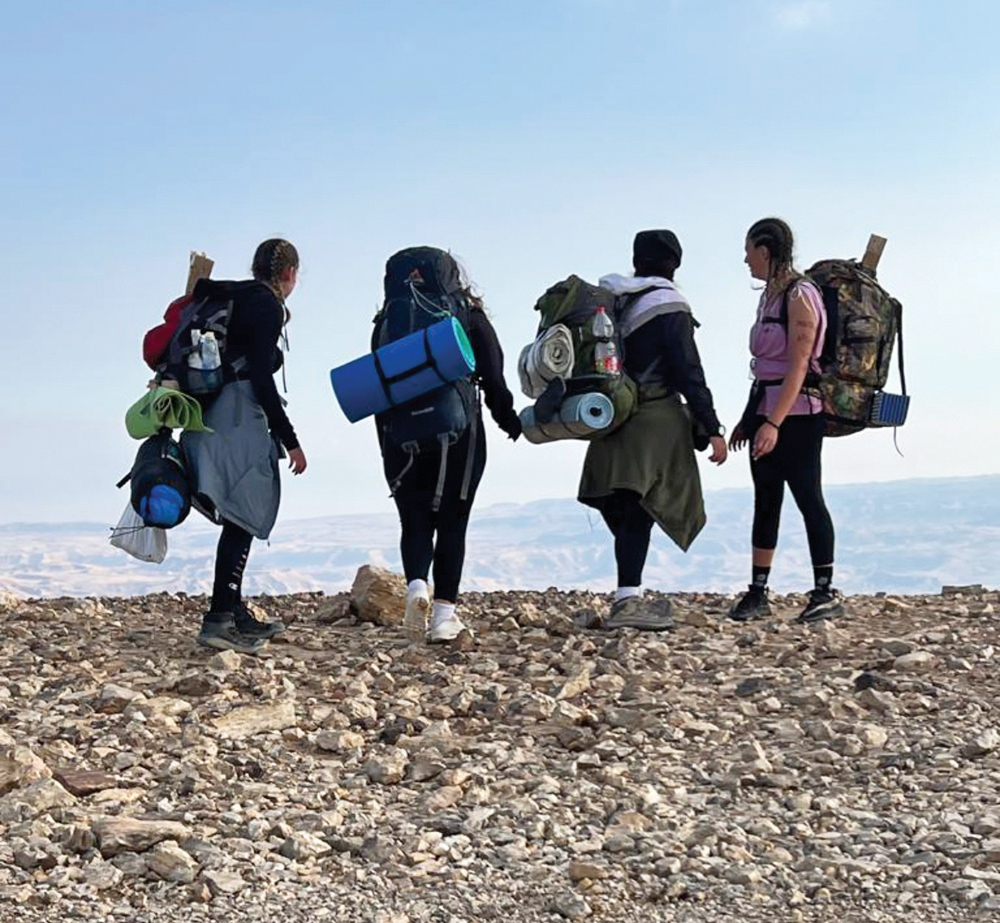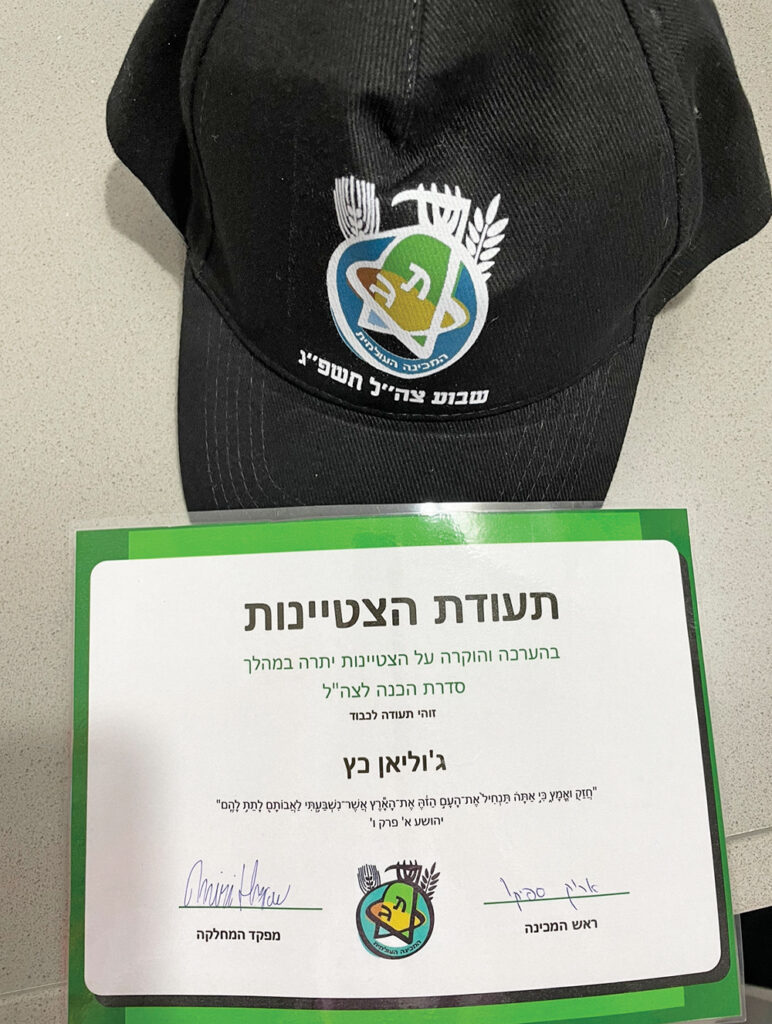For years, I grew up hearing about gap years. The majority of the time, I only heard positive comments, so I always believed I would take one. However, in high school, I was very education-focused, and I decided to head straight to university once I’d graduated. As often happens in life, not everything went according to plan. During April of my senior year, a close friend, Mira, invited me to her house for Shabbat lunch along with some of our other friends. I vividly remember sitting at the table outside and listening to all of my friends talk about their gap-year programs and their plans for Israel. I also distinctly remember the emotions I felt knowing that I wasn’t going that course, but instead continuing my education without pause.

In the months leading up to that lunch, I hadn’t been able to shake the feeling that I was missing something. A part of me wasn’t fully satisfied, and there was nothing I could do to fill that void. Consequently, after that lunch, I arrived home and immediately informed my mother that I had changed my mind; I wanted to take a gap year in Israel. As I processed my decision, I felt that hole slowly begin to close. Finally, when I boarded my flight to Israel, the null feeling was gone, and I knew with undeniable certainty that I had made the right decision.
I attended an intense, six-month Mechina program and an additional three-month Garin program, both orchestrated by Bnei Akiva and Kol Ami. I do not think I can adequately put into words what my experience was like, what it meant to me, or what it has done for me. Not only does one come out of a gap year stronger and smarter, but the life lessons learned throughout the year are ones that will stay with you for the rest of your life. Being surrounded by Jews and Zionists enhanced my love for our religion. Seeing the young men on my program from around the world get excited to read from the Torah throughout the week, or the young women preparing to light candles and bring in Shabbat, made me realize how lucky I am to be a part of the Jewish faith.
Before my year abroad, I felt a lack of confidence about things like taking public transportation, and I always felt a bit like a child under my parents’ care. This year I had no choice but to face adversity on my own. I was now independent, and I had to learn how to do things for myself. The first time I navigated public transportation was with Shira, a very close friend, and I accidentally took us on a bus in the wrong direction. However, I soon learned to navigate Israel’s public transportation system, which helped me become comfortable with many other adult responsibilities, all of which contributed to my growing maturity and ability to enjoy the year.

I traveled to eight countries during the course of my year, most of which occurred after my Mechina training, and learned many things along the way, but three main lessons stick out:
First, always think of the kvutzah (group). When you finally leave your hometown and your high school bubble, you learn quickly that the world does not revolve around you, and there are many other people around you who may struggle with the same things and deserve just as much. Don’t just think about yourself, but remember everyone.
Second, be comfortable with being uncomfortable. I was always a girl who loved her home. I loved my family, my room, my car and everything familiar and comfortable, but some of the best parts of life happen outside of one’s comfort zone.
Finally, failure is success. I’m aware that is an oxymoron, but hear me out. Every time I fail at something, for example, using public transportation for the first time, it helps me learn how to succeed the next time. I learned quickly how to get over my discomfort without feeling embarrassed, because the truth is, everybody at some point in their life has felt embarrassed, but in 10, 20 years, will anyone else remember?

I would say that the best part of my gap year were the friendships I formed. I have heard many stories of people who even fall in love and later get married to someone they met during their year in Israel. Though that was not the case for me (at least I think), I can say without hesitation that I made life-long friendships, which I wouldn’t trade for the world. You encounter so many different types of people, cultures, accents and sports from across the globe, and you realize there is a whole world outside of your hometown. I can truly say I am going to miss speaking Hebrew with my Israeli friends, as well as hearing the diverse accents of Australian, South African, British, Dutch and Mexican people. I am simply going to miss being with all of my friends abroad. Leaving my new friends has been one of the hardest parts of my transition home, but now I have all the more reason to visit other extraordinary countries and improve my “keeping in touch” skills.
Life is too short for regrets. I decided last May to take my gap year, and I embarked a couple of months later because I didn’t want to ask myself: “What if?” In the long run, graduating a year later won’t make a significant difference, whereas everything I learned this year, and all the people I met, will affect me for the rest of my life.

If you, your child or someone you know is contemplating a gap year, please don’t hesitate to reach out with any questions. At the end of the day, the memories make it all worth it.
Julianne Katz is a staff writer for The Jewish Link who is preparing to begin her first year of college at the University of Connecticut.











